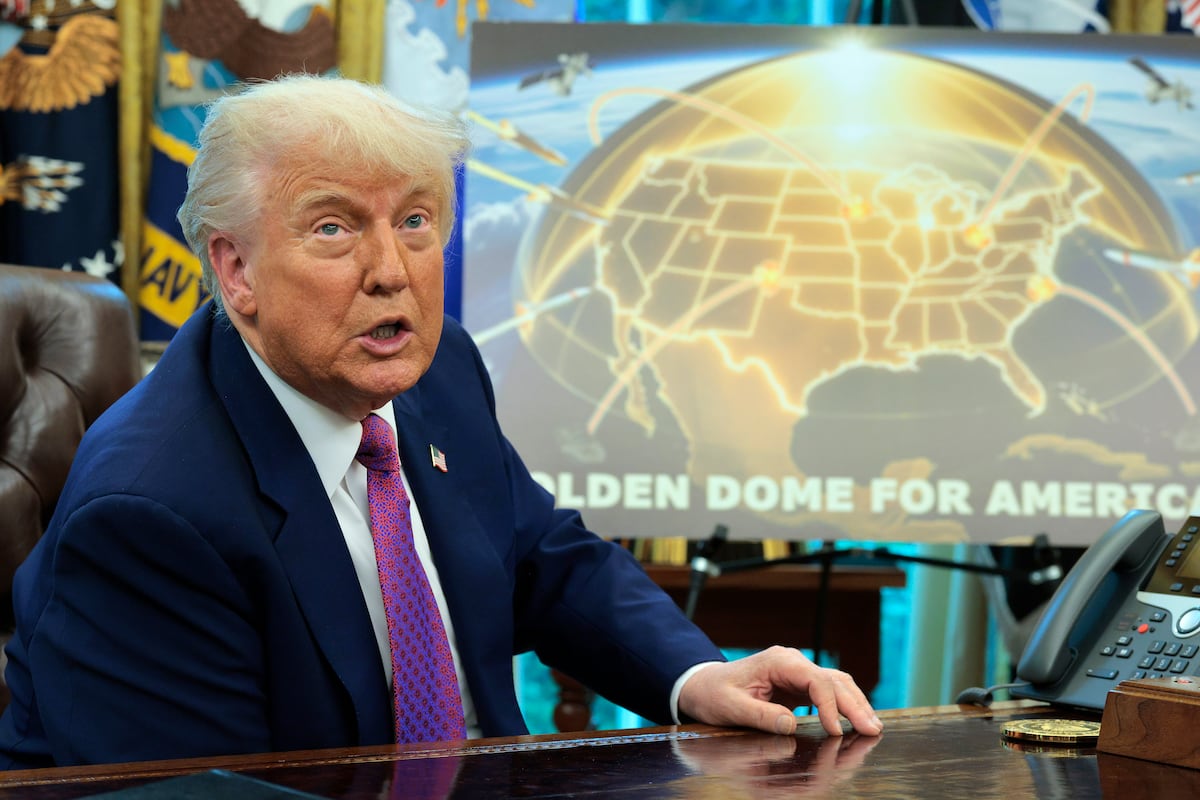



Two Republicans on the House Armed Services Committee today announced the establishment of the House Golden Dome Caucus to advocate for President Donald Trump’s push to create an advanced homeland missile defense shield.
Rep. Jeff Crank, R-Colo., announced the initiative during a Hudson Institute event in Washington, DC. Rep. Dale Strong, R-Ala., will co-chair the group.
“The House Golden Dome Caucus will serve as an educational clearinghouse for members and staff to engage with civilian and military leadership, industry partners, think tanks, and others in relation to the Golden Dome initiative,” Crank’s office said in a statement following the event.
The Senate, meanwhile, launched its own Golden Dome Caucus in May, led by Sen. Tim Sheehy, R-Mont. The two groups will collaborate “to maximize cooperation and efficiency,” Crank said.
Trump announced plans to field the layered missile defense capability – a network of ground, air and space-based sensors and missile interceptors – in a Jan. 27 executive order. Since then, the Pentagon has been working in earnest to draft an architecture and acquisition strategy for the effort.
The administration has not yet revealed the details of that strategy, but Trump said last month in an Oval Office press conference that the initiative will cost around $175 billion and be operating by the end of his term — a cost and schedule that experts have cast doubt on, especially without more specifics on the project’s scope.
A highly anticipated industry meeting slated for June 11 in Huntsville, Ala., was expected to provide some of that insight, but the Pentagon canceled the event last week without explanation.
During the Hudson event, Crank said he believes Golden Dome will be a “generational leap forward in defense of the homeland.” He pushed back on criticism from some Democrats in Congress who have questioned whether the capability is technically feasible and who have raised concerns that the plan to field space-based efforts could spur an arms race with Russia and China.
The Russian and Chinese governments have both condemned Golden Dome in recent weeks. In a joint statement on May 15, Chinese President Xi Jinping and Russian President Vladimir Putin said the U.S. government’s pursuit of “an overwhelming military superiority” is fundamentally destabilizing.
Crank characterized U.S. lawmakers’ misgivings as “a Pollyanna view” of the world and said he suspects some lawmakers on the other side of the aisle have a knee-jerk aversion to the Trump-driven initiative.
“It really just triggers some on the left,” he said, adding that some House Democrats have shown support for the caucus and plan to join after Republicans pass their budget reconciliation bill.
The House and Senate versions of the GOP’s budget reconciliation bill propose an initial $25 billion for Golden Dome, and a draft of the House Appropriation Committee’s defense subcommittee proposal for fiscal 2026 spending, released Monday, would add $13 billion for missile defense and space-based elements of the effort.
Courtney Albon is C4ISRNET’s space and emerging technology reporter. She has covered the U.S. military since 2012, with a focus on the Air Force and Space Force. She has reported on some of the Defense Department’s most significant acquisition, budget and policy challenges.
